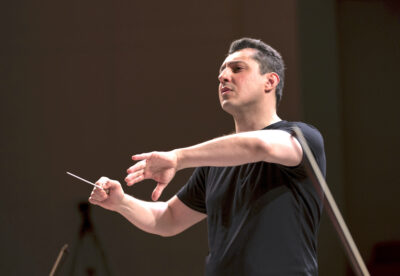By Harut Akopyan
I’m writing this as a personal manifesto intended first and foremost for myself, but also for the sake and memory of the dead and the eulogy of the living ignorant. To clarify, I am convinced that these two groups are one and the same as far as critical thinking is concerned. What I’m interested in is for myself as well as the Armenian community to separate itself from the shackles of mindless tradition. How treasonous it is to treat the dead with a meaningless copy of something you’ve witnessed a hundred times before, intended merely to clear your own conscience. Here I’m speaking about the routine treatment of the Armenian wake services, otherwise known as tesaktsutyun. To clarify further, this is not a criticism of the wake services itself but the way with which it is practiced today.
Before I go on about what I believe is one of the most monotonous events most Armenian-Americans willingly and unwillingly participate in whenever a loved one passes, I would like to leave my own will in this essay. When I am no longer a breathing and living mass of blood and bones, my one and only wish is for the service, if one is even provided, not take place in a church with priests directing the service in some religious/spiritual fashion which I find absurd. I have no qualms with people getting together to console themselves and remember the dead by paying their last “respects” so to speak. Anywhere else; a basketball court, a warehouse, even a banquet hall. But not a house built on ancient ideas and the oppression of the body and mind (especially for women), both of which it intends to control to this day.
Why then write this? The answer lies not in some diatribe against the church but in the revelation of a hypocrisy in the collective minds of our communities. Although this hypocritical snake has many heads, I will only speak of one of them today: the banal treatment of the tesaktsutyun. In my opinion, hypocrisy is the single most poisonous obstacle that has tarnished the will and consciousness of today’s Diaspora Armenians. I can only speak of the Diaspora (more specifically Los Angeles) because I have lived most of my life there. Though many things are shared with the people in the Republic of Armenia, my conscience cannot allow me to freely criticize a cultural phenomenon of a country and a people whose land and water I don’t share.
I find it surreal that in the “house of God,” many of the attendees solemnly bow their heads and ritually make a cross with their hands to their foreheads, while only ever stepping foot inside this building during funerals and weddings. That in itself is fine if you are merely an attendee. After all, incredulity doesn’t give you an excuse to be socially reclusive or not respect the “other” if the other is an honest churchgoer. By honest I mean to say one who is active in the church and knows his verses and follows them rationally. Surely everyone cannot be an honest churchgoer. How is it then that everyone with a dead family member ends up doing the same exact service and everyone else ends up attending it? I think it is because there are very few, if at all, honest churchgoers left. What we have today are echoes and reflections of a past. These attendees have never set their eyes on the pages of a bible nor do they pray (with the exception of praying for miracles, the lottery, or safety when in danger). The laziness of thought and the lack of courage invites them to continue with a tradition which they do not care for. Most of them sit through the service, without understanding a word in the liturgy that the priest is hymning or talking about (for good reason some would argue). What’s more is that this doesn’t bother them and they will freely admit their lack of connection with the church. Starting Monday, they will go right back to consuming porn and greedily chasing more money. Mind you, I don’t attach a code of conduct or moral equivalence to any of those things nor am I against them. The difference is that I admit it while they don’t. Although virulent in nature, this criticism is not a pipe dream. I acknowledge the fact that these words aren’t meant for our grandparents or our parents. You can’t teach an old dog new tricks just as much as you can’t strip away meaningless tradition out of what’s left in the creative mind of the baby boomer. This is more or less directed at the millennials and the generation that will inherit their wisdom. There is still time for you to do as you wish with your own legacy.
But it doesn’t end there. Where there is hypocrisy, there will undoubtedly be mind-numbing clichés. There is a certain trend that has taken over these services where a known “orator” within the community will deliver the eulogy. There are a few of these orators who are famous within the community and can regularly be seen on Armenian television. Their talents include their haunting voices and their ability to recite poetry in spoken-word fashion, a unique and beautiful Armenian tradition. Leave it to the living ignorant to take something independently creative and distinct and make it into a market for the dead. There is nothing inherently wrong with someone of stature eulogizing the dead. But when everyone else feels obligated to do this, as if to claim some kind of inclusiveness and class status, then it makes something (the eulogy) that is meant to be a personal and beautiful recollection of one’s significant and insignificant time on earth into something that can be purchased. How do you not see this? If you care for the memory of your dead so much, why not speak about them yourselves and kick the priests and the orators out of the building? One way could be to invite others to speak about them and make their memory a living and relatable act of affection. Because once gone, the dead will slowly but surely be forgotten. And you, the living ignorant, will slowly but surely forget that you have repeated yourselves until you are no longer living but still ignorant.







